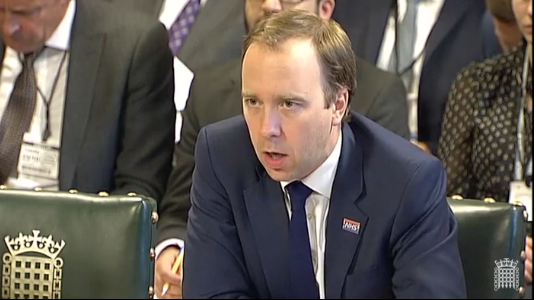Medicines supply a concern in no-deal Brexit scenario
In News
Follow this topic
Bookmark
Record learning outcomes

With less than six months to go before the UK leaves the European Union, there are still major concerns around medicines supply in the event of a no-deal Brexit, the commons health committee heard last week (October 23). Brexit secretary Dominic Raab said on Wednesday 31 October that he expects a deal to be agreed by November 21.
The select committee heard that the UK’s health and social care network is deeply integrated with the EU. EU law expert Tamara Hervey said that if the UK leaves without a deal and becomes a ‘third country’ legally, the results would be “chaotic and disruptive”.
Healthcare Distribution Association chief executive Martin Sawer said: “What keeps us awake is the uncertainty of a no-deal. On average, 50 per cent of the medicines in most of our depots have been through the EU before they get to UK warehouses, and this whole integrated supply chain that we rely on was clearly set up after we joined the EU.”
“Any challenge to that without an arrangement that makes for a frictionless border will mean shocks to the supply chain” and potentially medicine shortages and “huge price rises for the NHS,” Mr Sawer said.
The Association of the British Pharmaceutical Industry’s Mike Thompson said scale was one concern, with 37 million packs of medicines coming into the UK from the EU every month.
Martin Sawer said the “system would become very unbalanced very quickly if there was a shortage in any particular area”.
Another concern is that “almost all” the newer medicines being produced are biologics that require cold chain storage. “There are no cold-chain facilities at the border ports,” Mike Thompson said.
Stockpiling
ABPI members have been working to comply with health secretary Matt Hancock’s request to stockpile six weeks’ supply of medicines in the event of no deal, Mike Thompson said, adding that “our industry has the longest supply chain of any industry” with a year being a typical amount of time needed to establish a supply chain for a new medicine.
However, Mr Thompson said, “stockpiling in itself will not be enough to protect British patients” and additional measures will be needed.
The HDA’s Martin Sawer said he had not seen the basis on which the Government arrived at the six weeks figure and so could not judge whether the industry should stockpile for a longer period.
Mr Sawer suggested that if a deal is not agreed soon patients might have to consider stockpiling their medicines: “We need politicians to understand that there could be consequences of a no-deal and those are the consequences… we’re not suggesting anyone needs to stockpile outside of the supply chain yet, but come January that might be a different picture.”
Emergency measures
Emergency measures that may be required in the event of a no-deal Brexit include allowing pharmacists to substitute medicines they have in stock for those listed on a prescription without first obtaining the approval of a patient’s GP, Martin Sawer said.
However, Matt Hancock said this wasn’t “something that I’m aware of” and that he was confident that “if everybody does what they need to do, then we will have the unhindered supply” that is required.
Pharmacy bodies respond
The National Pharmacy Association said it is “very difficult for the pharmacy sector to make detailed preparations… that is why we have been calling for the re-establishment of the Medicines Supply Chain Forum, which previously provided an environment for candid discussion between Government, pharmacists, wholesalers and pharmaceutical manufacturers.”
The Company Chemists’ Association urged the Government to strengthen its medicines contingency planning for Brexit and consider planning beyond a six-week stockpiling period.
CCA chief executive Malcolm Harrison said: “CCA member companies are at the sharp end of patient care in communities across the UK and want to ensure they can continue to meet patient need and provide accurate information to patients and the public about how they can access their medicines.”
